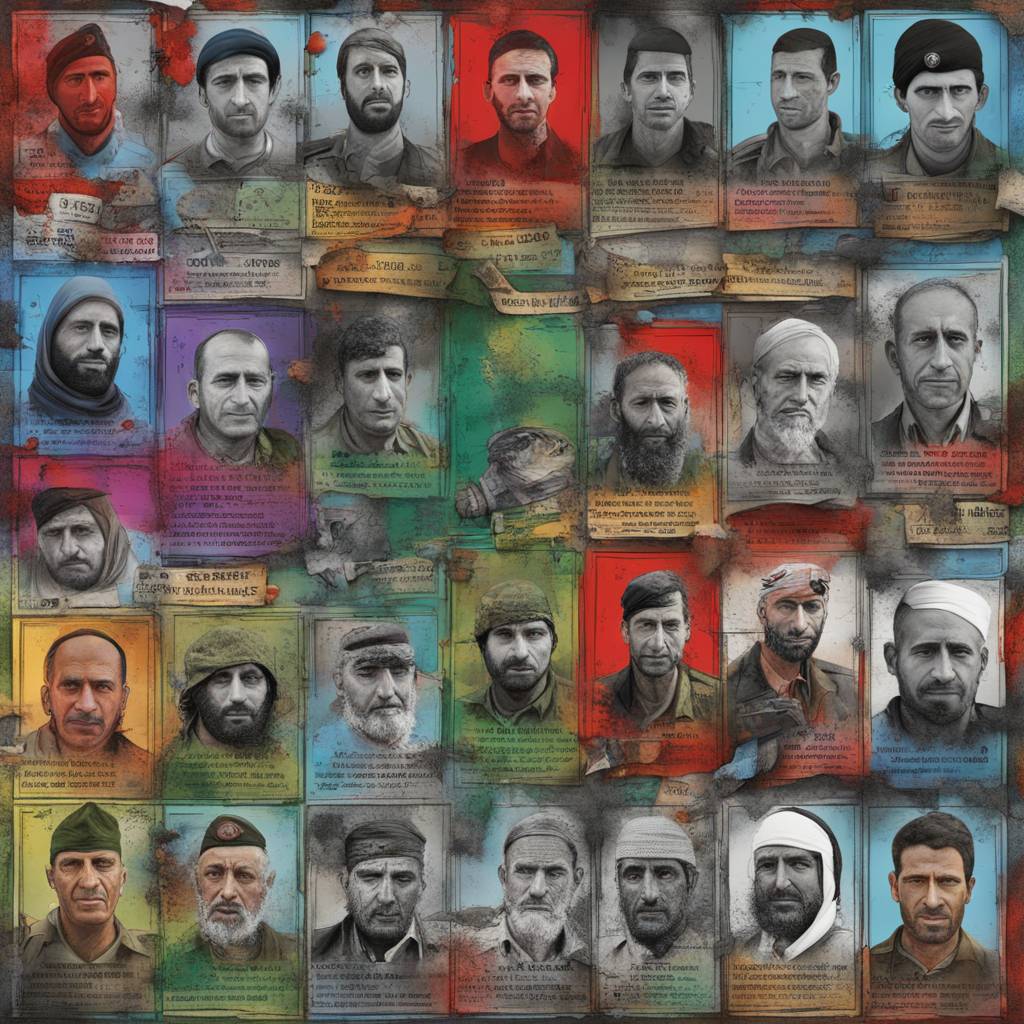The deadly conflict between Israel and Lebanon has escalated, with a series of Israeli airstrikes killing 16 people in southern Lebanon and Hezbollah retaliating with a barrage of rockets that killed one Israeli man. The violence marks the deadliest day in over five months of fighting along the border. Tens of thousands of people on both sides have been displaced as a result of the ongoing conflict. Concerns have been raised about further escalation along the Israel-Lebanon frontier since the outbreak of the Israel-Hamas war in Gaza.
The Israeli airstrikes on Wednesday targeted a Lebanese Sunni political and militant organization known as the Islamic Group, which has aligned with Hezbollah in the fight against Israel. The strikes also resulted in the deaths of two Hezbollah fighters and a local commander with the Amal Movement, another Shiite group. The first airstrike hit a paramedic center affiliated with the Islamic Group in Hebbariye, killing seven members. Israel claimed to have targeted a member of the Islamic Group involved in attacks against Israel, as well as several other militants.
Hezbollah claimed responsibility for firing rockets into the northern Israeli city of Kiryat Shmona and a military base in retaliation for the airstrike on the paramedic center. A 25-year-old man was killed in Kiryat Shmona, and around 30 rockets were launched from Lebanon toward northern Israel. The violence has had devastating consequences for civilians on both sides, with businesses and homes being destroyed. Amidst the chaos, international mediators are working to prevent a full-scale war from erupting along the border.
The ongoing conflict has resulted in the deaths of nine civilians and 11 soldiers in Israel, as well as nearly 240 Hezbollah fighters and about 40 civilians in Lebanon. The violence, which began shortly after Hamas-led militants attacked southern Israel in October, has been mostly confined to the border area. The near-daily violence highlights the volatility of the situation and the urgent need for a peaceful resolution to prevent further loss of life and destruction.
The airstrikes in Lebanon have targeted various groups aligned with Hezbollah, including the Islamic Group and the Amal Movement. The violence has left many businesses, such as Nada Khleif’s bakery in Hebbariyeh, destroyed, depriving people of their livelihoods. The airstrikes have also resulted in casualties among paramedics and other civilians, further exacerbating the humanitarian crisis in the region. The ongoing conflict has disrupted the lives of countless individuals and forced many to flee their homes due to the relentless violence.
The Israeli military has vowed to continue targeting militant groups in Lebanon, such as the Islamic Group and Hezbollah, in response to attacks on Israeli territory. Meanwhile, Hezbollah has promised to retaliate against Israeli airstrikes by firing rockets into northern Israel. The cycle of violence shows no signs of abating, and the international community must intervene to prevent further bloodshed and suffering. The escalating conflict poses a threat to regional stability and highlights the urgent need for a diplomatic resolution to the crisis.
As the death toll rises on both sides of the border, the impact of the ongoing conflict is felt by civilians who are caught in the crossfire. Families are being torn apart, businesses are being destroyed, and livelihoods are being threatened. The violence has upended the lives of ordinary people who are simply trying to survive amidst the chaos and destruction. The international community must act swiftly to bring an end to the conflict and prevent further loss of life in this volatile region.


